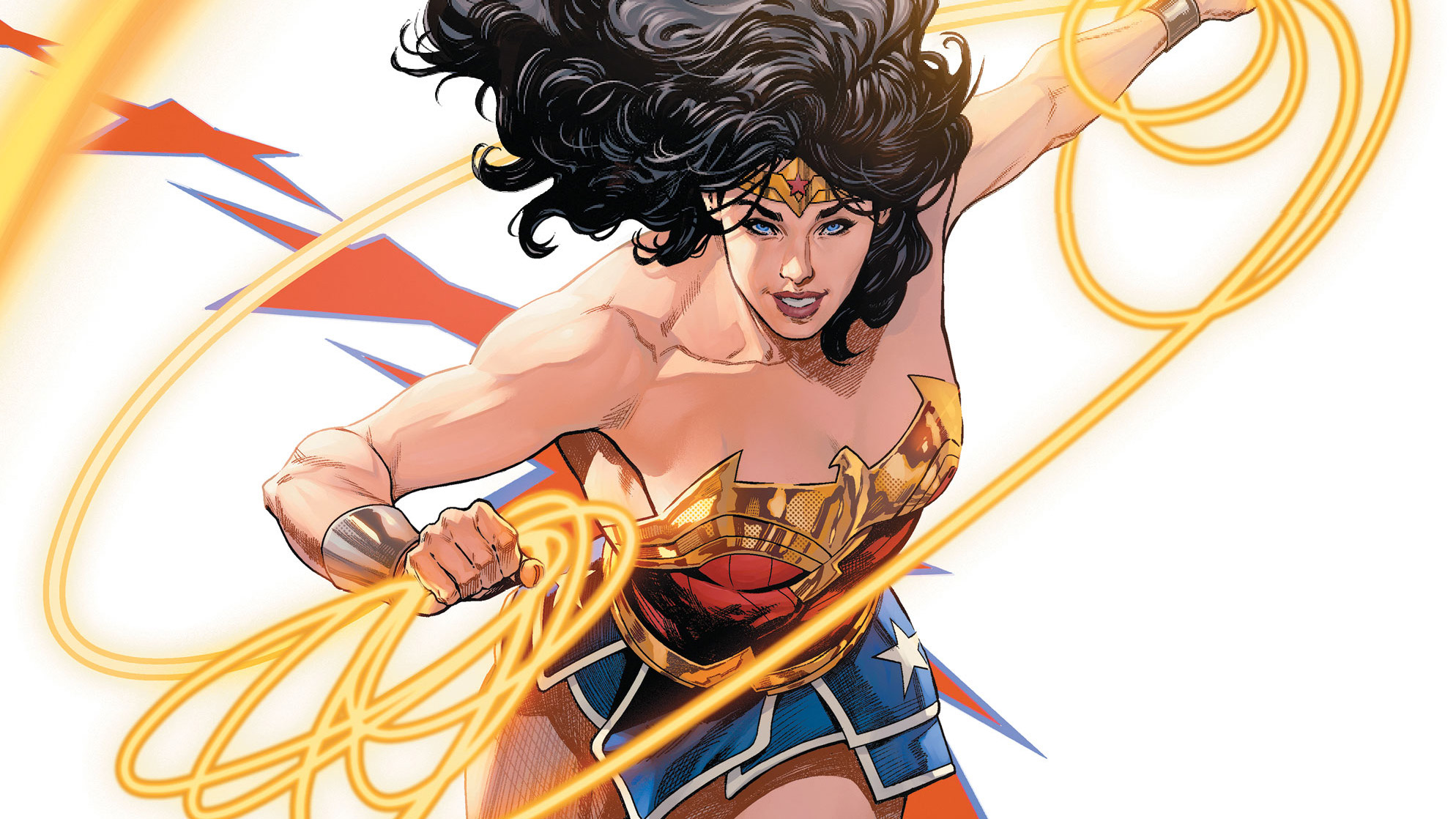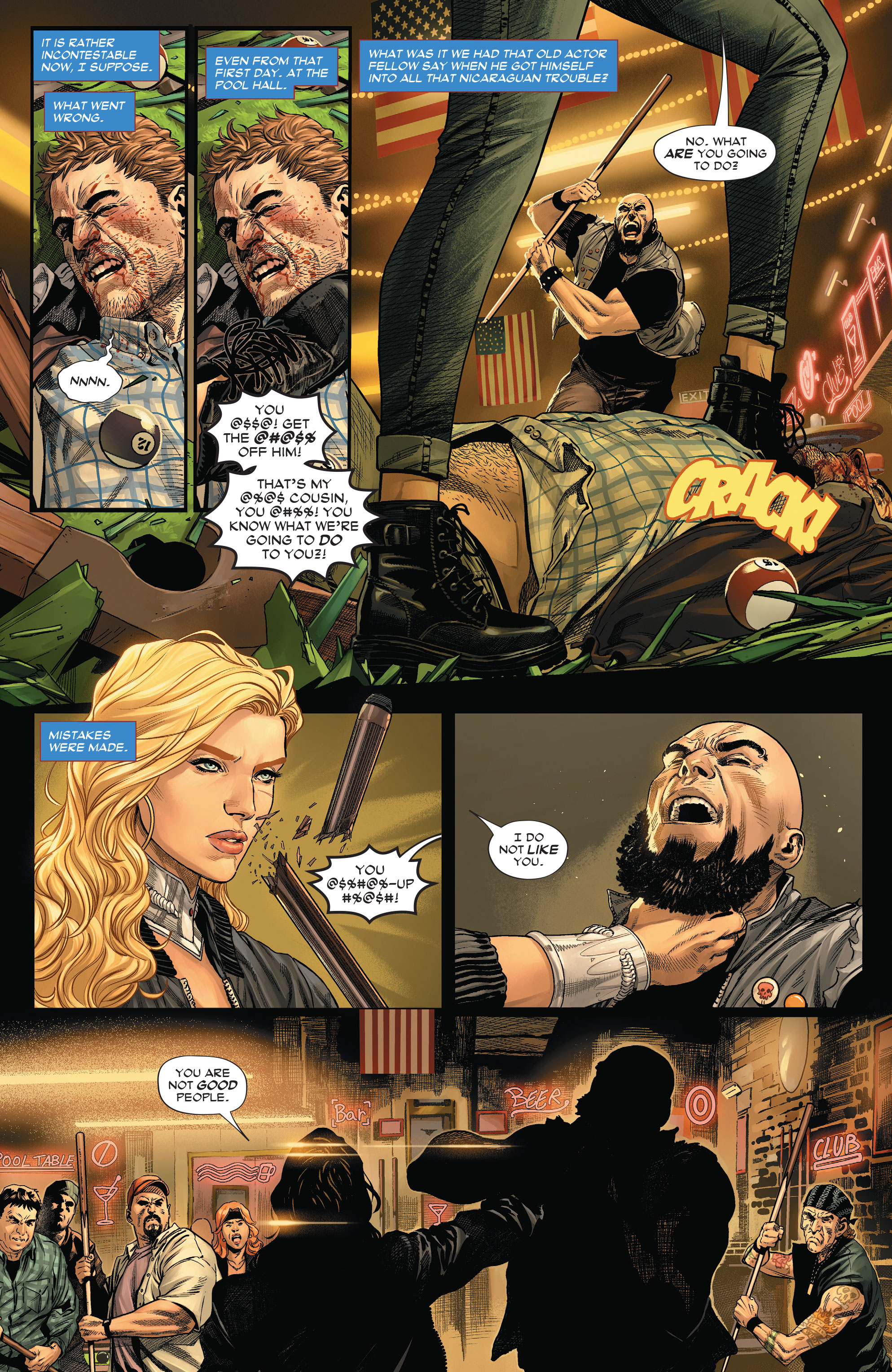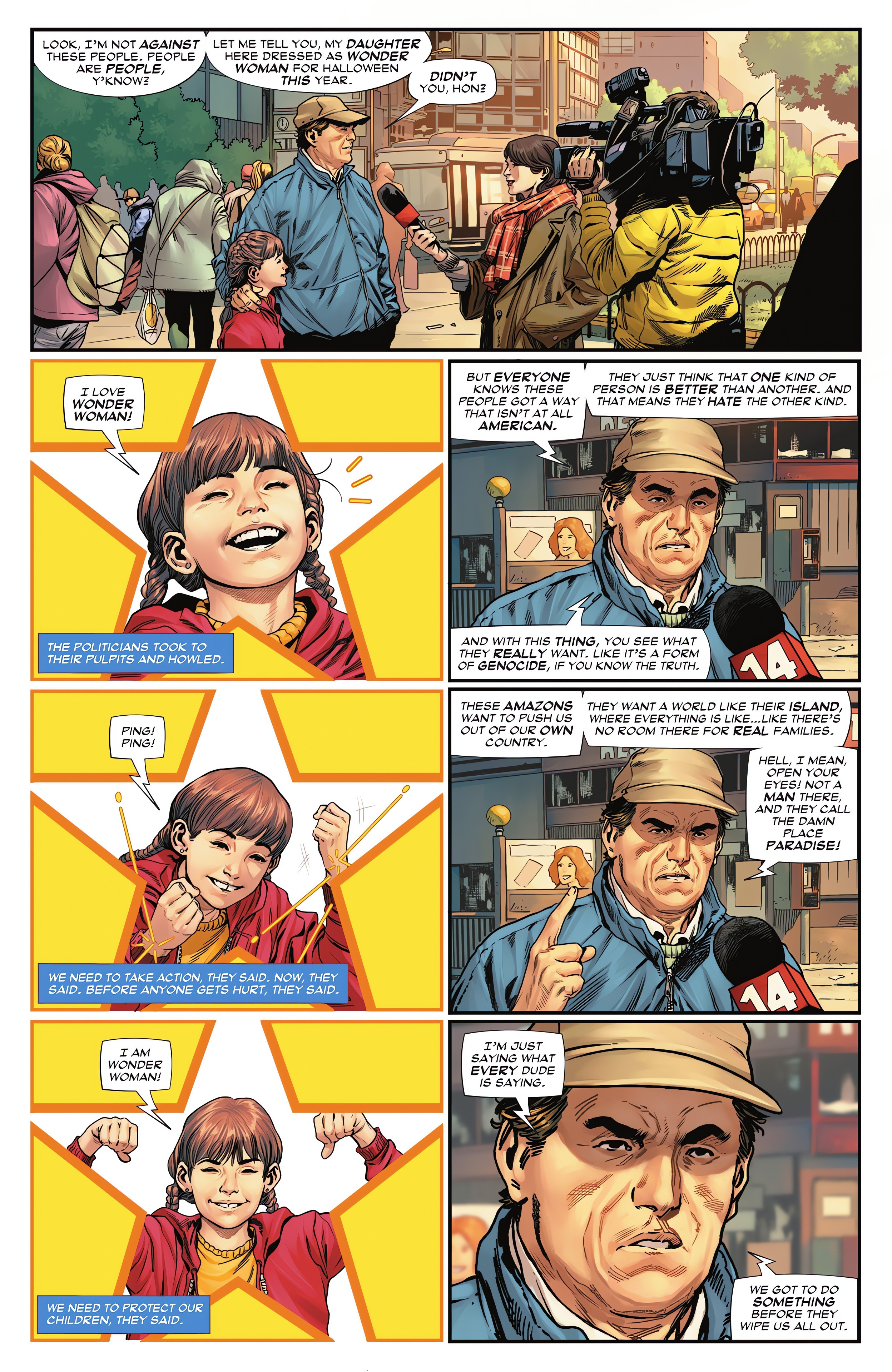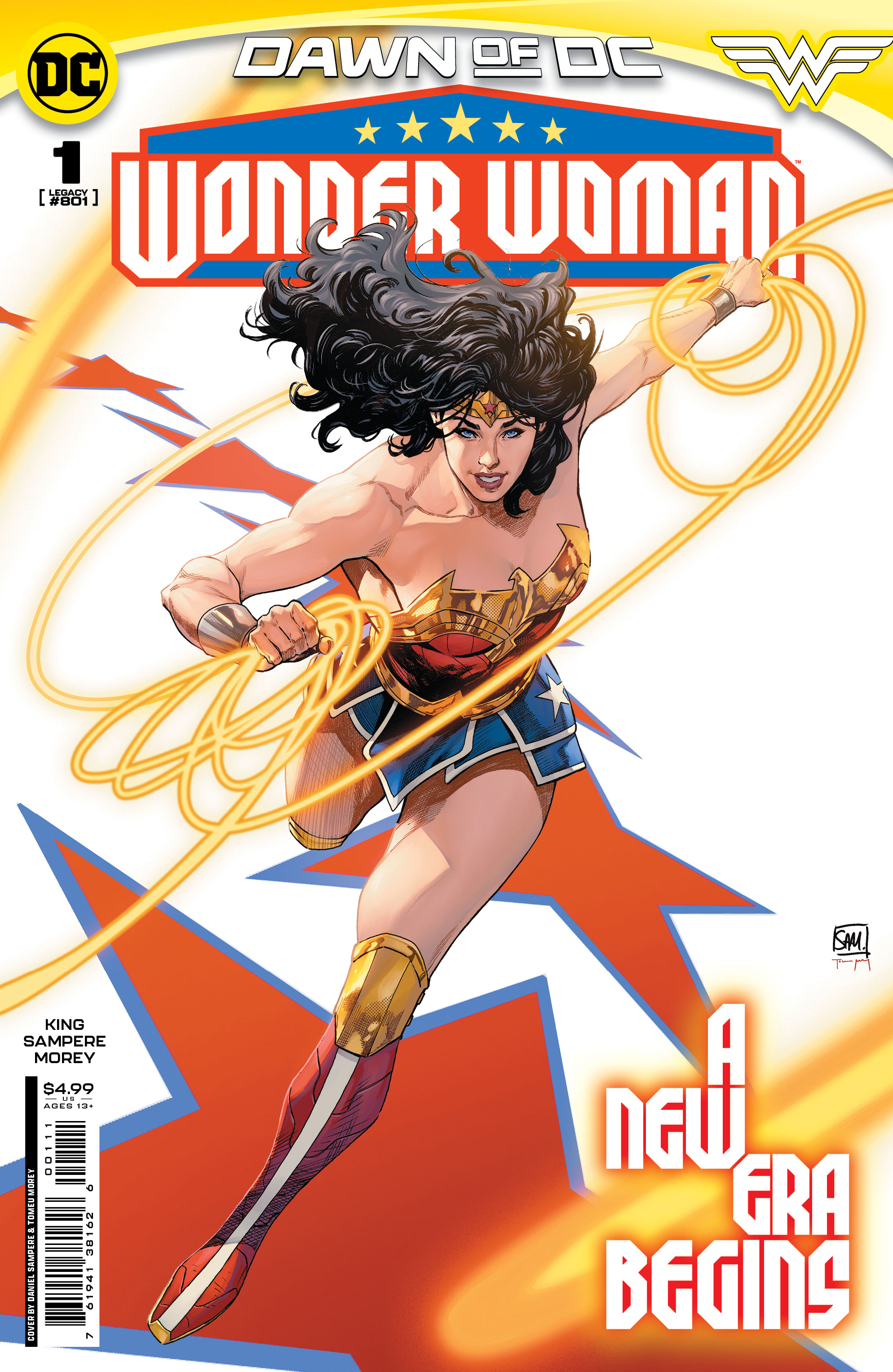DC's new Wonder Woman mixes politics and punching to spectacular effect
Opinion | King and Sampere take on the Amazing Amazon with stellar results

At one point late in the terrific first issue of Tom King, Daniel Sampere and Tomeu Morey's Wonder Woman, which launched this week, a caption sets the stakes for the series to come. "Us against her. America versus Wonder Woman."
Really, though, as the issue makes abundantly clear, it's America versus the Amazons as a whole. The first part of opening arc 'Outlaw' takes a slow burn approach, depicting beat-by-beat the unraveling of alliances between the United States and Themyscira. It's not the first time this has happened (see 2007's Amazons Attack!), but it certainly seems like one of the most dramatic conflicts between the two powers. Spoilers ahead.

It starts with a brutal mass killing in a pool hall. The killer is Emelie, an Amazon, who is responding in self-defense to an aggressive group of men who first verbally and then physically assault her. The murder of 19 men is, by any measure, A Bit Much, but it's clear that she is not the instigator of this violence.
From there things move frighteningly quickly. A page of news reports - text heavy and arguably the one clumsy note in an otherwise well-judged issue - play it all out.
"This was, in some way, an attack by the Amazons on American values," says one news anchor. Later, recording some TV vox pops, one of the broadcasters talks to an unnamed background character - a literal man on the street - who first claims to have nothing against the Amazons, before declaring that "these people want to push us out of our own country." Now why does that sound so familiar?

It's no time at all before the Amazons are being forcibly deported and, in many cases, executed courtesy of Sergeant Steel - a dimly-remembered DC character, here reinvented as a sort of evil Ted Lasso, the hokey, good-old-boy charm of his dialogue masking an unrepentant killer and misogynist who takes pleasure in his cruelty and in his casual put-downs of every female character he encounters.
Steel is the focus of much of this issue. He makes for a genuinely unsettling villain and while Diana does defeat him (crushing his metal hand in the process), her victory feels hollow. "I know that you and I will meet many times in the future," she says, already predicting the next battle. More to the point, she knows that even if Steel were to go away forever, another man just like him would take his place.
Comic deals, prizes and latest news
Get the best comic news, insights, opinions, analysis and more!

King, Sampere and Morey's comic does not mask or obfuscate its themes. This is a story about our present moment and some of the issues that we're grappling with in the real world, from institutionalised misogyny to the forced deportation of migrants.
No one is expecting a comic book to solve these problems, of course and they are ultimately still couched in the language of superhero stories. By the end of the issue there's the indication that a new supervillain, The Sovereign, is the force truly responsible for much of this chaos, and Diana will no doubt meet and kick him at some point. Still, King's script addresses these real world issues head on while still telling an exciting Wonder Woman story.

About Diana... Some fans have grumbled about how strange it is that the title character doesn't appear in the book until late on (she enters, spectacularly thanks to Sampere and Morey's incredible work, on page 19) and, to be fair, her absence from the wider situation is a little strange. Still, it's clear that the creative team are taking their time with this thing and there is only so much incident that you can cram into any single issue. Where has Wonder Woman been while all this chaos is unfolding? I've no doubt at all that we'll find that out over the course of the next few months.
Wonder Woman #1 will not be for everyone. Some may find its combination of politics and punching heavy-handed, but from where we're standing this feels like an instant winner for DC and the start of a very promising new run, one that upends the status quo and leaves Diana Prince in uncharted territory.
These are the best Wonder Woman stories of all time.

Will Salmon is the Streaming Editor for GamesRadar+. He has been writing about film, TV, comics, and music for more than 15 years, which is quite a long time if you stop and think about it. At Future he launched the scary movie magazine Horrorville, relaunched Comic Heroes, and has written for every issue of SFX magazine for well over a decade. His music writing has appeared in The Quietus, MOJO, Electronic Sound, Clash, and loads of other places too.


